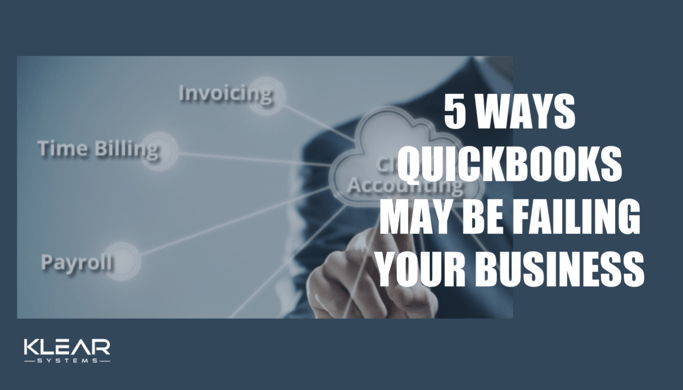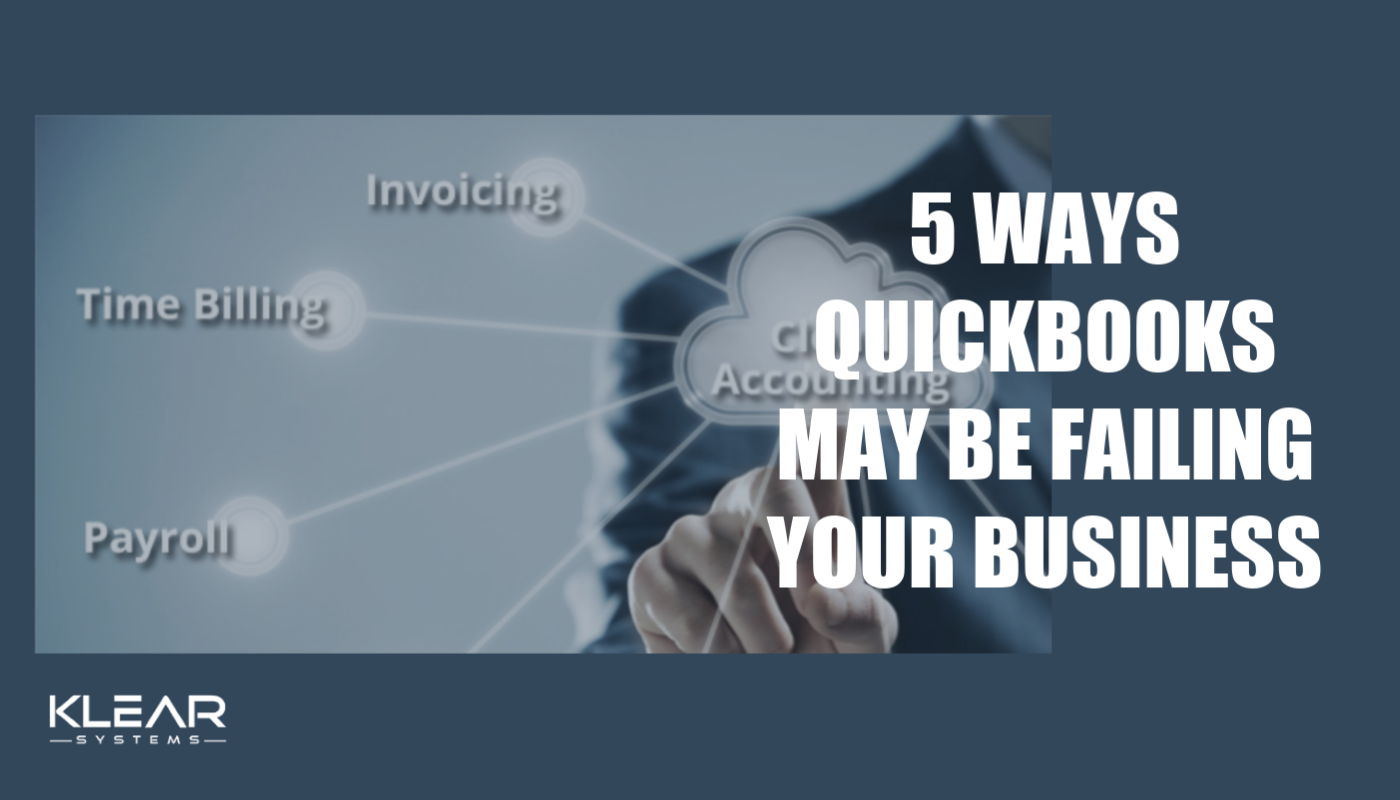*** Updated Content - September 2019 ***
QuickBooks has been the go-to financial software for small businesses for years! However, as these small businesses grow they begin to discover the inadequacy of this financial software. Users might find that this financial management solution has many limitations to several processes businesses use to supplement their growth such as insufficient visibility to data. Often times businesses need to add multiple systems that do not integrate well with each other in order to complete many of their day-to-day operations.

So, just how is QuickBooks failing today’s businesses?
1. Lack of real-time data reporting
Often times data can become buried within multiple systems that don’t communicate competently with one another while using Quickbooks. Rather than spending time on analysis and decision making, employees have to hunt for this hidden data. In most cases the data they are hunting for is out of date or incomplete because it comes from various locations. With cloud-based financials, data is presented in real-time from anywhere. This real-time access to data allows for better time management and quicker reaction time for decision makers.
2. Manual Processes Used for Entering Data
Manual entry requires employees spend time entering information which leads to an increase in errors. Incorrect customer data could be present and lead to important documents (like bills and invoices) being sent to the wrong places. Approval time for decisions slows as documents become lost and valuable time is spent to match them to other records. Data entry on cloud-based financial software is seamless. To ensure the most accurate information is constantly available the data is visible to a variety of departments and employees and can be easily updated, once entered.
3. Sales and Customer Service Issues
Customers have come to expect a set of standards while shopping online. Lack of visibility into stock levels, customer service, and other departments can lead to a loss of sales. As a result, customers can grow frustrated and turn to other companies that run faster and more efficiently. When information is strewn about through multiple departments, sales & marketing teams are unable to collect and filter accurate data in order to target campaigns to specific customer bases. Thus leading to a surplus of unsold inventory. Using cloud-based software allows your small business to have better customer service, as well as conversion rates, with prospects due to readily available, accurate data.
4. Accounting Time
Unlike many cloud-based software programs, QuickBooks has a limited set of accounting functions. This lack of functionality means several applications must be used to complete the job. Businesses are growing and changing rapidly, and legacy software systems can’t handle complex business processes like recurring billing, making it difficult for expansion into new locations and product lines. These systems lack fundamentals that adapt to industry specific requirements like prepayments. Cloud-based business management systems, however, offer integrated solutions for recurring billing and global expansion including multiple currencies and tax rates.
5. Adding New Technology Takes Up Valuable Time
Adding new software to existing infrastructures creates a tangled, complicated web that is inflexible and time consuming. New software isn’t the only variable sucking valuable time from businesses, it’s the hardware itself. Equipment and software upgrades lead to higher maintenance costs as technology moves quickly and many businesses fail to keep pace with newer versions. Because data and business processes are streamlined in one place, maintenance costs are lower for companies running cloud-based financial software.
Why Companies Are Making the Switch to Cloud Financials:
Companies across many industries are making the switch to cloud-based financial software such as Acumatica. These systems deliver outcomes that are faster, cheaper, and use less resources than other entities while proving to be scalable to accelerate growth. Dual data entry is eliminated, freeing up valuable time to build better customer relationships.
If switching to a cloud-based financial solution sounds daunting, there are knowledgeable consultants, like Klear Systems, Inc., who can help with implementation and customization through an on-site business process review.







